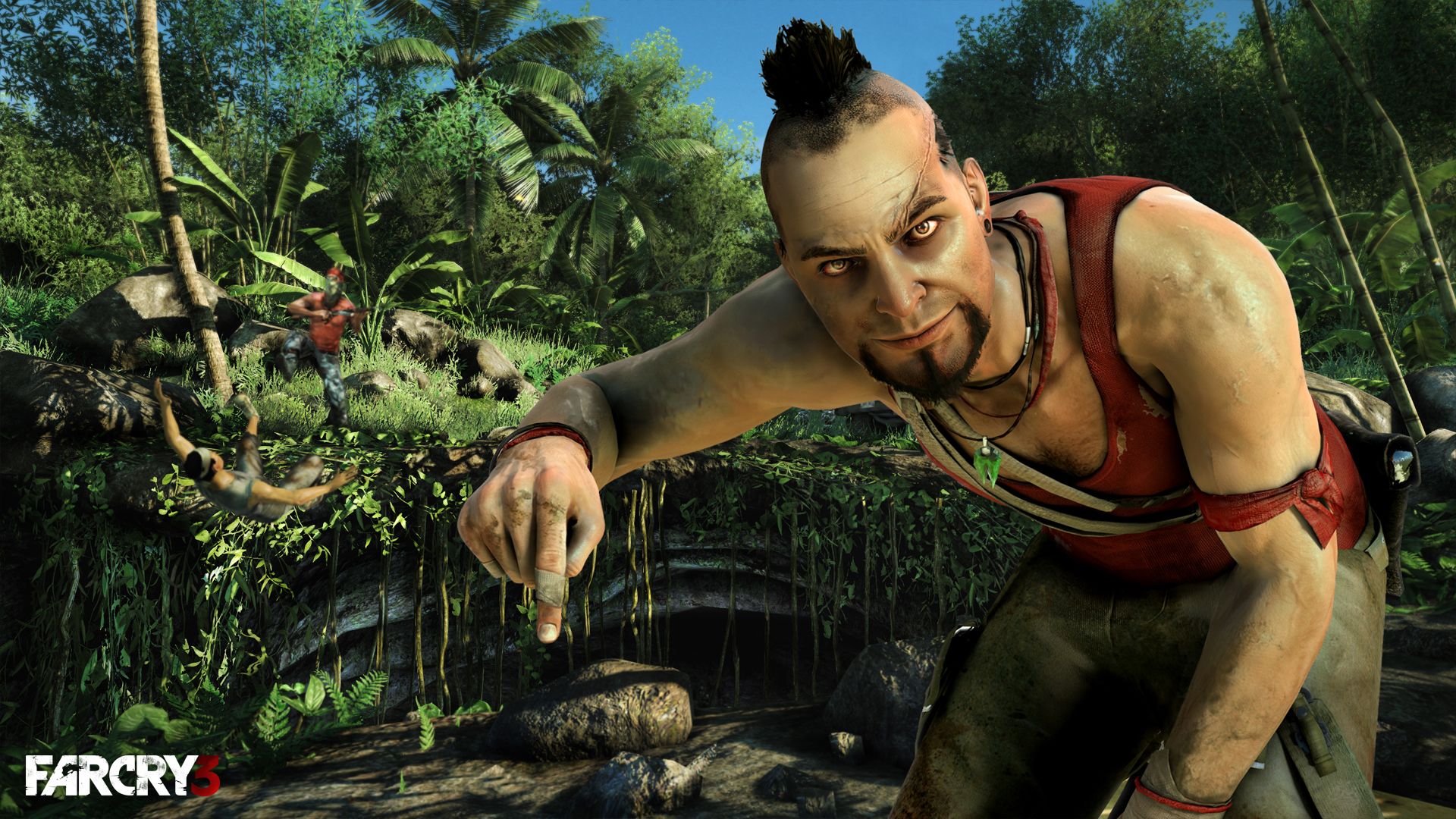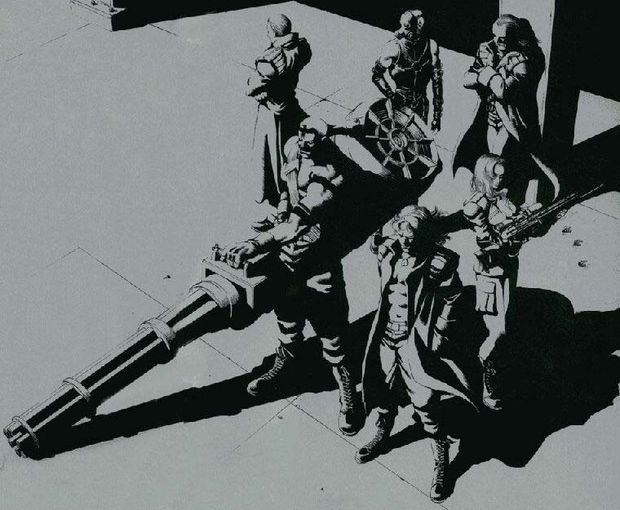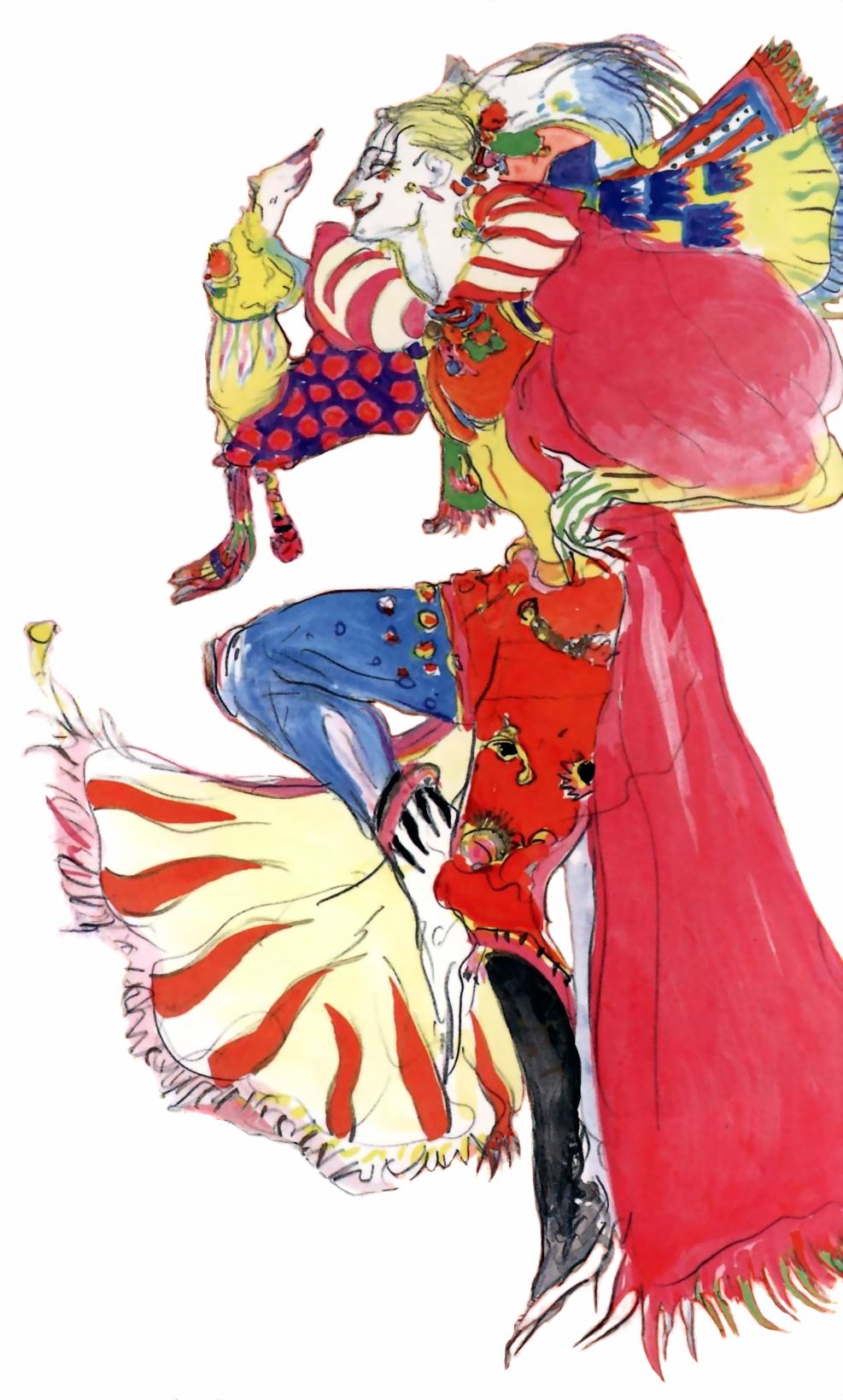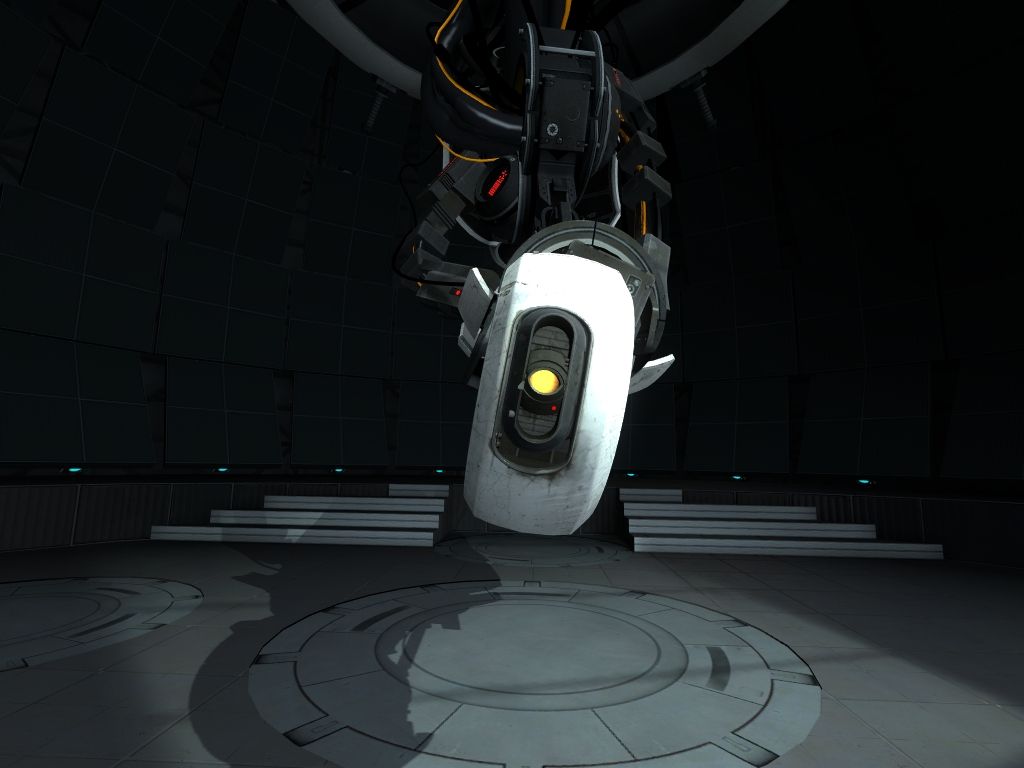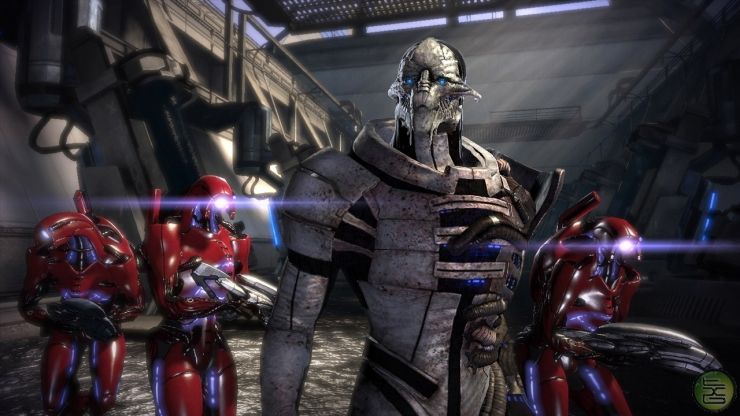Most games have a main villain, that big bad guy who becomes the essential center to your characters story. That antagonist can come in a number of forms, from former allies to the simple essence of pure evil. But what is it that makes a villain great and memorable, one we want to know more about versus a villain we just want to stop? Usually, it is their charisma, their sense that what they are doing is right more than their sense of style or their actual master plan to enslave or destroy humanity. I've always been a fan of a great villain, in the sense that I've always enjoyed pitting myself against a character that actually makes me think, or who is so intriguing that I want to know more about them, or is so insane that I can't help but wonder what drives them, or, dare I say, one who is so charismatic that with the right combination of words and rewards, I could actually be convinced to join.
I decided to explore this with a few choice examples after recently re-watching the awesome preview of Far Cry 3 that Ubisoft showed at their eclectic E3 conference. In the trailer, embedded below this paragraph, you are met by a madman named Vaas, who possesses an off center mohawk and a surprisingly calm disposition. He quickly turns violent, but his speech is riveting. His speech got me thinking about what makes a villain memorable. Vaas is someone who I already want to meet in the context of a game. He seems like the kind of character who has an interesting story, something to broaden my world view, and also something to give the game character. Maybe it is the way the he is so honest about his misunderstandings, or his casual, yet somewhat regretful, mention of murdering someone over that misunderstanding. Vaas is the kind of villain that you know would turn on you in a flash (indeed, he does in the trailer), but in spite of that, there is something about him that makes you want to see more of him. If Vaas' charisma is just an example of what we will see in the game, Far Cry 3 will be a real treat.
http://www.youtube.com/v/iaGSSrp49uc?version=3&hl=en_US&rel=0
There have been many other villains that have tried to evoke this kind of charisma, where you aren't sure of their stability, but you are sure that they believe strongly in what they're doing. For some, it is controlling the world. For others it is simply money or survival. Vaas is a good example to get this started, but aside from his excellent monologue, we don't know enough about him. The Jackal, your target in Far Cry 2 might be a good way to get things started. He is an intriguing character in his own right, quoting Nietzche and waxing philosophy as if he were Col. Kurtz himself. However, while the Jackal, and Kurtz himself, might serve as an inspiration for Vaas, he was not seen enough to really be all that memorable. So I decided to delve deeper into the history of gaming and see who some of the most memorable bosses and villains were, and in no particular order, see if I couldn't figure out quite why.
The FOXHOUND Unit - Metal Gear Solid
I couldn't think of a better series to begin with than Metal Gear Solid. The series has always treated its bosses with a strange admiration. The fights were always unique and forced players to use all their wits. However, the most memorable bosses came from Metal Gear Solid. Aside from their creativity, each boss has their own unique storyline. Well, at least most of them do, as Decoy Octopus is never actually fleshed out. But the main five each get to not only tell their side of the story of why they went rogue, but also each reveals something about Snake's own personality. Sniper Wolf reflects Snake's existence as a lifelong soldier, someone never really given a choice in fighting. Vulcan Raven reflects the deaths and betrayals that seem to follow Snake around. But the most memorable of all, on par with the lasting villains of the series like Liquid Snake and Revolver Ocelot, was Psycho Mantis.
Psycho Mantis' charisma was unlike anything else I had seen at the time it came out in 1998; above all else, he effectively broke the fourth wall. Sure, adventure games and other games had done this, but it was a stark contrast to the rest of the game, which takes itself seriously for the most part. This was important because whereas all the other characters were reflections of Snake, Psycho Mantis was also a reflection on the player and their ability to solve puzzles and be creative. While the game helped the player through this, Mantis was designed to see through the guise of Snake and the game, and really throw a wrench into the way we played games. He read the player's memory card and made the controller vibrate via the new (at the time) rumble feature. With his dying breath, he allows Snake to progress, commenting that helping people feels "kind of nice," alluding to what might have been had he lived longer. His dialogue taunting the player and the mystery that surrounded him led him an undeniable air of personality that I continue to remember, over a decade after first playing the game.
Kefka - Final Fantasy VI
Kefka is probably the epitome of the egomaniac. He is someone who believes himself to be a god, and damn near almost becomes one. Well, he actually does become one, you just have to bring him down. Kefka, at his most basic, is actually a rather generic bad guy. He wants to control the world, even if it is just a husk. What makes him so interesting as a villain, is that his mad plan actually succeeds.
Kefka constantly proves just how twisted he is. While many villains aspire to true evil, some by killing a player character midway through the game, Kefka takes things a step further. He poisons an entire castle's water supply to end a siege, kills the espers with relative ease and manages to actually destroy the world. Kefka's madness is unparalleled. Other games have tried to emulate him, but he was the worst of the worst. He had no loyalty except to himself, unceremoniously murdering his own emperor.
Kefka's insanity stands out amongst just about every other RPG villain, and not just because he was the first. Even to this day, Kefka still stands out. His personality, warped by his exposure to magic, was that of an evil clown. However he was so much more than that. He is still to date one of the best examples of delightfully pure evil, the kind of villain that you could not stop watching because you had no idea what he was actually capable of. Even today, Kefka's legacy lasts. Sure Sephiroth comes close, but no other Final Fantasy villain, or any RPG villain really, has come close to the level of evil that Kefka was able to reach.
GLaDOS - Portal
The Genetic Lifeform and Disk Operating System, better known as GLaDOS, is another special antagonist. She is an example of an Evil AI, probably only rivaled by SHODAN (System Shock) in her own special brand of insanity. However, what makes GLaDOS special is her actual personality. She is not just interested in merely killing you; rather, she is still limited by her programming. She really just wants to test you to death. GLaDOS is special because of her interesting use of psychology. She leads you along, pretending to care, at least until the tests are over and she is done with you. Then it is off to your death.
The way she leads the player on, goads them or mocks them hints at her sadistic streak, before finally being revealed as a true villain in the last act of the first Portal. She is twisted and mean, but not without reason. Her resentment of humans is further explored in Portal 2. In the second game, she is shown to be more than just another insane computer. Her resentment comes from her original personality, who never wanted to be implanted in a computer. Portal 2 is still new enough that I don't want to spoil the nuances that can be gathered from paying attention to the dialogue, but suffice to say that GLaDOS is a more conflicted character than you would imagine.
GLaDOS' charisma comes from her rather unique sense of humor as she mocks the player through each level. However, the further you get into the Portal series, you realize that her humor is something of a defense mechanism, and the only way she seems to be able to retain what small bit of sanity she still has after she has been assaulted with personality cores and the rest of the mad scientists at Aperture. She is evil, but she also seems to genuinely care about her job. Her personality is one that fluctuates and changes throughout the game. She is an entertaining villain because she has real personality, as she goes through a full spectrum of emotions throughout the two games. She is arguably the best written character that gaming has ever seen, as her subtle nuances make her more than just an evil AI. Maybe it is something akin to Stockholm Syndrome, but she sometimes seems to actually care about you. Or maybe she is just an AI that plays mind games to make you think that. Either way, GLaDOS is one of the most complex and enjoyable villains in gaming.
There are plenty of other great villains in gaming. From the scummy CEO Antagonist of Alpha Protocol, who offers you a job after you foil his plans (and to the games credit, you can accept), to the mathematical madness of Sho Minamimoto from The World Ends With You, through Saren Arterius in Mass Effect, you can often find good villains in the strangest of places. The above list is by no means a definitive list either, as one of the best things about games is our abundance of enjoyable and charismatic villains. That said, for truly great villains, you need to look back, and see which ones you still fondly remember years later. I have no doubt that GLaDOS, like Kefka and Psycho Mantis before her, will stand this test of time. At the same time, I look forward to games like Far Cry 3 for giving me new, charismatic villains to look forward to meeting. While a great villain wont necessarily make or break a game, it has the power to transform a good game into a fantastic one.

